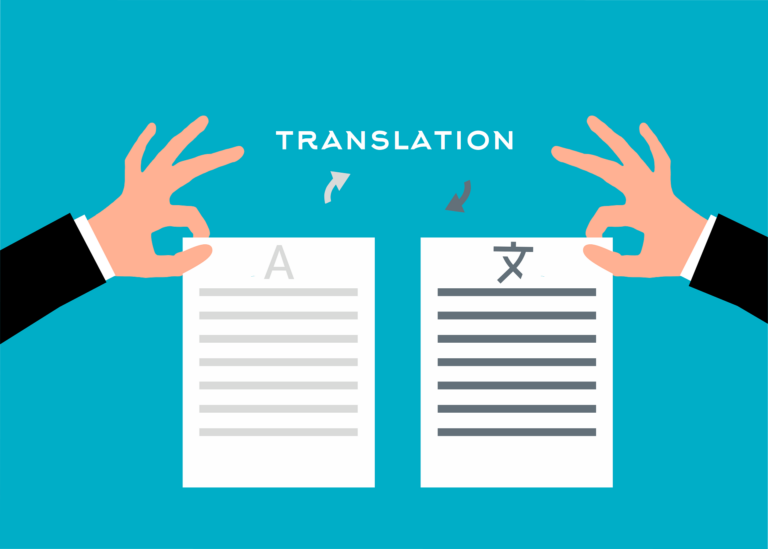Companies looking to expand their presence in foreign markets often face the need to translate their content in order to make themselves understood by audiences that speak other languages. Although communication is a sector in which companies are investing more and more money, there is a separate problem with translators that has been going on for years.
Outsourcing the translation service or hiring in-house translators as permanent employees, that is the question. It is clear that choosing the right professional translator to ensure the quality and accuracy of the content is essential, not so much how it should be done. Both options have advantages and disadvantages, and the choice will depend on a number of factors, such as company size, workload, translation frequency, costs and turnaround times.
Factors to consider when hiring a translator
Outsourcing translation services to an agency or freelance translators is a popular option for many companies that do not have an in-house communications team or translators, or that need translations on an ad hoc or infrequent basis. In contrast, hiring translators as permanent employees of an organization is an option for companies that have frequent translation needs and are looking to have more direct and specific control over the translation process.
Some of the factors to consider when making the decision:
- Access to experts: Outsourcing the translation service allows companies to access translators with expertise in specific languages and sectors that may not be available in-house. In-house translators work closely with company staff and are familiar with company-specific terminology and conventions, which helps to maintain consistency and coherence of content across languages.
- Monitoring and control of work: When translation services are outsourced, companies gain flexibility to adapt to fluctuations in the demand for translations, although they lose some control over the work process, which can affect the quality and consistency of content or alter delivery deadlines if the supplier does not comply with agreements. On the other hand, having translators on staff often allows companies to ensure that content is translated according to their needs and expectations. However, they run the risk of not being enough to cope with peak workloads.
- Costs: Outsourcing the translation service can be more cost-effective than hiring in-house translators. Hiring translators on a permanent basis involves the costs associated with recruitment, training, equipment and remuneration.
- Security risks: If the company works with confidential or proprietary information, outsourcing the translation service may increase security risks, since the documents will be handled by third parties.
It is important to carefully evaluate the advantages and disadvantages of each option before making a decision. There are no right or wrong choices; it will depend on the size of the company and the translation work that needs to be done.
Desirable characteristics in a professional translator
In any case, the key is to work with experienced and reliable professionals who can guarantee the quality and accuracy of the translations, regardless of the option you choose. Some essential characteristics to look for in a professional translator to ensure they are well prepared to work for your company:
- Experience and training: Educational background and experience are critical. It is desirable to find a translator who has adequate training in the field of translation and extensive experience in translating texts similar to the ones your company needs, as he/she will be familiar with industry-specific terminology and conventions.
- Language proficiency: It is essential that the translator is fluent in both the source and target languages of the texts to be translated. It is recommended that translators be native speakers of the target language because they will be aware of regional and cultural variations that may influence the message, such as differences in dialects, idioms and cultural references.
- Knowledge of the subject matter: In order for the translator to deliver an accurate and quality translation, it is essential that he or she has knowledge of the specific subject matter being addressed. For example, if your company is in technology, it is important that the translator has experience in translating technical technology texts. If your company is in the medical sector, the translator must have knowledge in the healthcare field to be able to translate accurately.
- Editing and proofreading skills: The translator’s job is not only to translate, but also to ensure that the translated text is consistent, accurate and well-structured. In addition, he/she must be familiar with computer-assisted translation (CAT) tools and proofreading software. The translator must have editing and proofreading skills to be able to correct grammatical, spelling and punctuation errors in the translated text.
- Professionalism and commitment: It is important that the translator is reliable, meets deadlines and is available to answer any questions or concerns of the client. He/she must have good communication skills and commitment to his/her work, as well as be able to work in a team and be proactive in offering solutions to problems that arise during the translation process.
- Respect for privacy and confidentiality: The translator must comply with the privacy and confidentiality rules of the company he/she works for, as he/she may have access to confidential or private information. It is important that the translator sign a confidentiality agreement and take measures to ensure the security and privacy of the documents and information being handled.
Some companies fail to realize the importance of taking the time to research and find the best translator for their business. A quality professional can make the difference between a mediocre translation and one that clearly communicates the message you want to convey to your audience in the foreign market.
Want to consult a translation agency? Check out our professional services!



